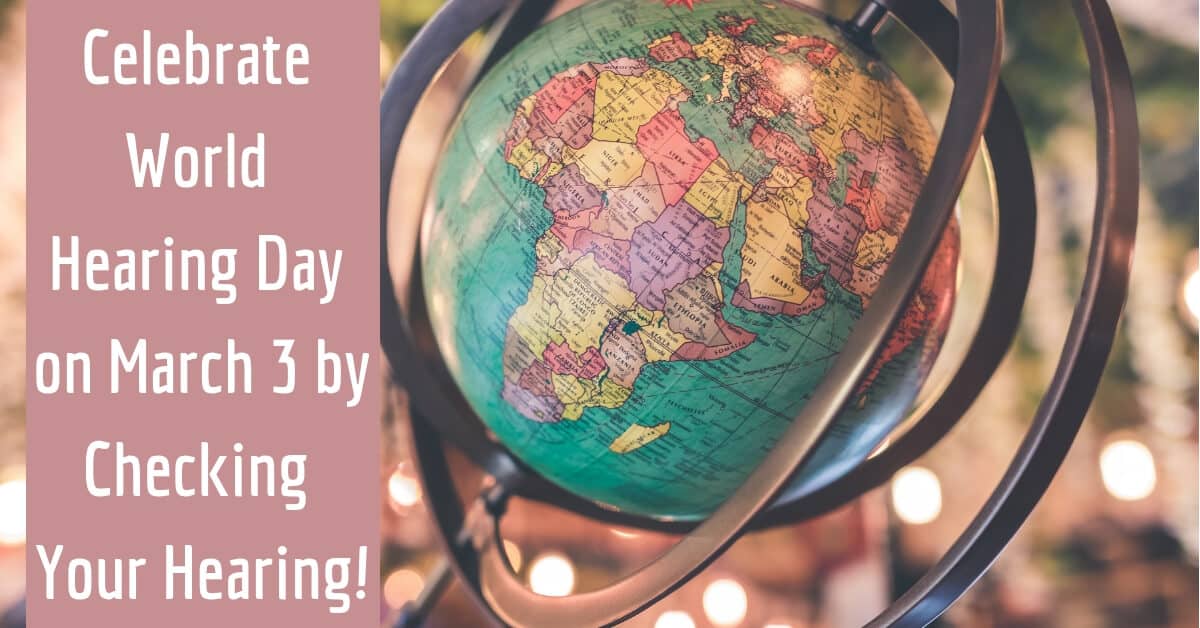
World Hearing Day is soon approaching on March 3rd. The World Health Organization (WHO) first introduced World Hearing day back in 2007 as a global campaign on ear and hearing care that calls for action to address hearing loss. Each year the campaign has a different theme and 2019’s theme is Check You Hearing. This year WHO will draw attention to the importance of early identification and intervention for hearing loss. Countless of people live with untreated hearing loss, often failing to realize they are missing out on particular sounds and words. Checking one’s hearing is the first step in addressing the issue of hearing loss.
What is World Hearing Day and What is Trying to Achieve?
World Hearing Day is the largest global campaign that addresses ear and hearing health, while also calling for action to address hearing loss. World Hearing Day aims to promote public health actions, stimulating intersectoral partnerships, raise awareness on hearing loss and care, and encourage behavior change towards healthy ear and hearing care. You may be wondering why there is such a day dedicated to hearing loss and health. The next section examines how widespread and prevalent hearing loss is throughout the globe.
Hearing Loss is a Global Health Concern
The World Health Organization estimates that there are 466 million persons in the world with debilitating hearing loss. That number equates to just over 6% of the entire world population. Of the 466, 93% of those facing hearing loss are adults and the remainder 7% are children. Approximately one third of people over 65 years of age are affected by hearing loss. If these numbers don’t astonishing enough, 60% of childhood hearing is due to preventable causes and a whopping 1.1 billion young people between the ages of 12-35 are at risk of hearing loss due to exposure to loud noises. These numbers underscore the urgency to address hearing loss as a global health concern and take necessary measures to mitigate the rising problem. Unless some form of action is taken, WHO projects that the number of those facing hearing loss globally will reach to 900 million by 2050.
Understanding Hearing Loss and Its Causes
According to WHO, a person who is not able to hear as well as someone with normal hearing –hearing thresholds of 25 decibels (dB) or better in both ears – is considered to have hearing loss. Decibels are units used to measure the intensity of sound. To give you an idea of what 25 dB is, whispering quietly in a library is recorded at roughly 30dB. Hearing loss may range from mild to moderate to severe or to profound. It can affect one or both of your ears, and leads to challenges in picking up conversational speech or loud sounds.
The causes of hearing loss are either congenital or acquired. Congenital causes of hearing loss are often present at or acquired soon after birth. Hearing loss in these instances may or may not be hereditary and may be due to certain complications during pregnancy. Acquired causes of hearing loss is includes infectious diseases (meningitis, measles, or mumps), chronic ear infections, collection of fluid in the ear (otitis media), or use of certain medications. Injury to the ear or head, ageing, and blockage to the ear canal may also cause hearing loss. But the most common form of hearing loss is noise induced. Excessive loud noises at extended periods of time in any environment will damage one’s hearing ability. Understanding hearing loss and its causes is a great first step in terms of early detection and intervention.
Early Detection and Treatment
On average, it takes an individual with hearing loss an average of seven years to seek treatment. To go untreated that long can only deteriorate your hearing ability even further. That is why early detection and intervention is so crucial in minimizing the impact of hearing loss. In infant and child populations, early detection greatly improves their linguistic, developmental, and educational outcomes. In adults, detecting hearing loss early on and getting treatment sooner than later improves social, physical and mental well-being. Further it improves interpersonal relationships, contributes to higher earning power, and contributes to better overall health.
Get Your Hearing Tested Today and Encourage a Loved One to As Well!
Knowledge is power as the saying goes. Knowing more about hearing loss, its causes, and the importance of early detection and interventions is just the first step in improving your hearing health. One must put this knowledge into action. You can do that by scheduling a hearing test for you or a loved one today with us at Ascent Audiology and Hearing. Our hearing health professionals will assist you in identifying your level of hearing, and if there is hearing loss, you will be well equipped with experts in the field to fit you with the right hearing device!
